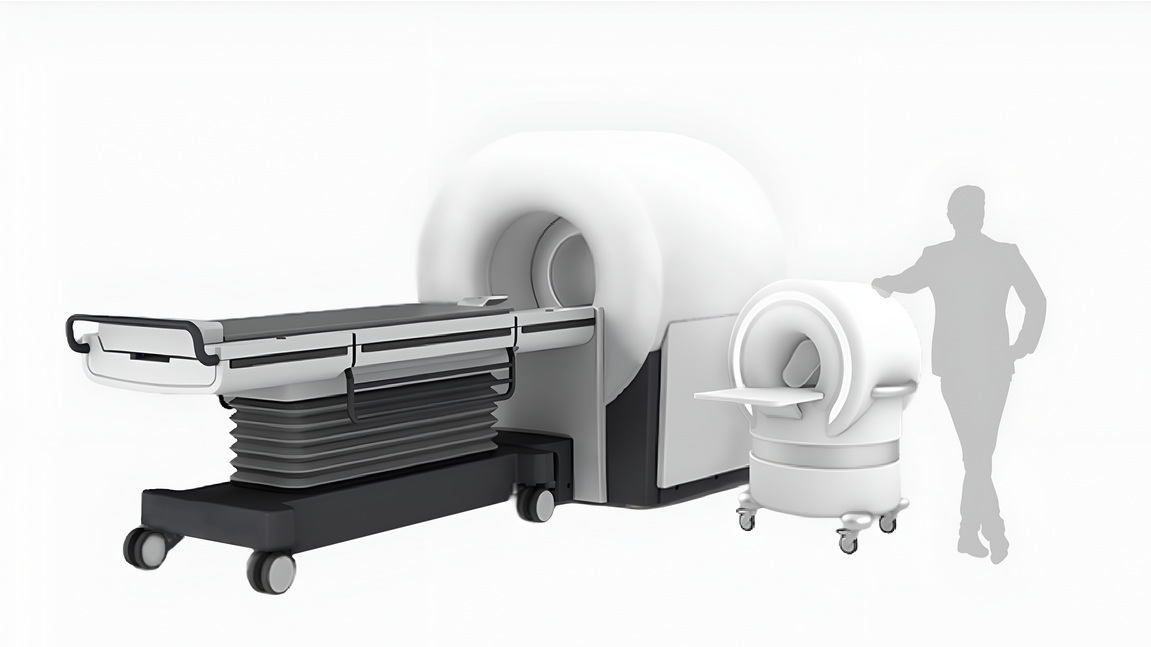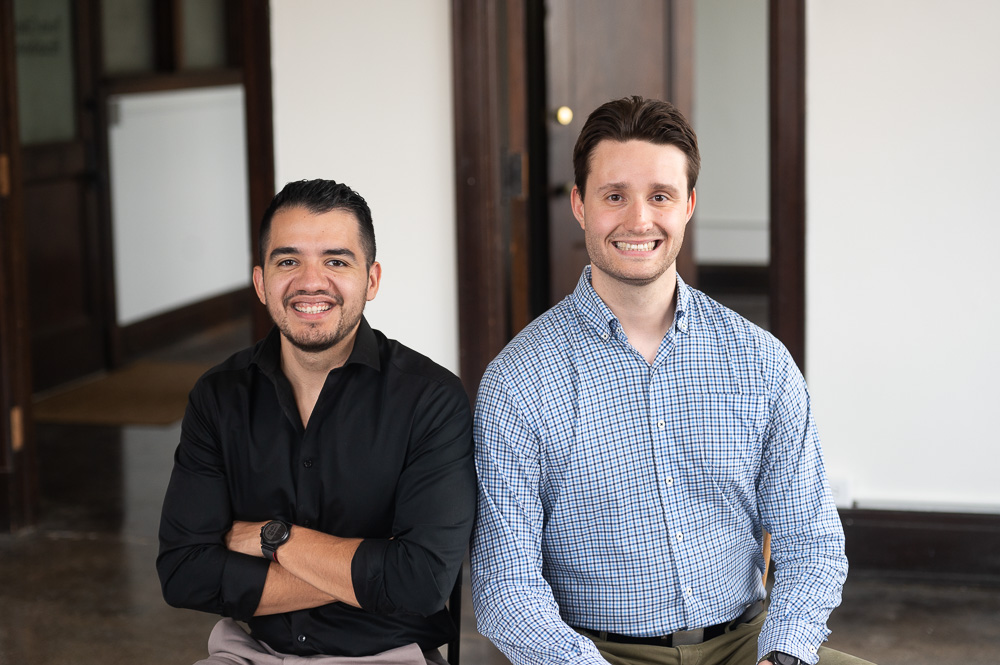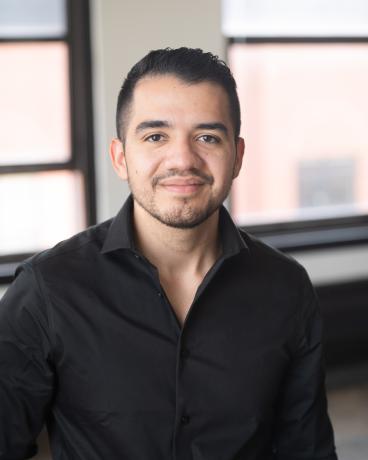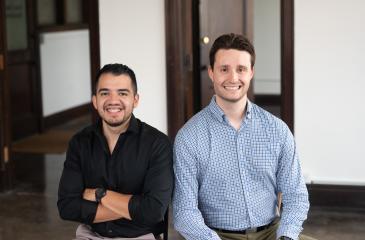A CTSI grantee has developed a new kind of magnetic resonance imaging (MRI) that has the potential to change medical care for millions of children.
Efraín Torres, PhD, who completed his doctoral degree in biomedical engineering at the University of Minnesota this fall, alongside Parker Jenkins, who is in the midst of completing his PhD degree, and the team at Adialante has created a portable and low-cost MRI scanner. Thanks to a grant from CTSI’s Office of Discovery and Translation (ODAT), he hopes to quickly move it to market.
ODAT was the first to fund the product, awarding Torres and collaborators a $148,000 grant to apply their proprietary MRI technology platform to pediatric MRI scanning. And then, just one year later, Torres and team broke $1.3 million in funding and are looking to complete their seed round of financing at $3.5 million.
Their product’s potential is massive, as Torres explains:
“This MRI scanner is going to disrupt the field. The goal is to make a difference in communities like the ones I grew up in on the south side of Chicago, where the clinics are very bare bones and lacking even second-rate technology. Soon, it’ll be possible for MRI scanners to be wherever they’re needed — minute clinics, doctor’s offices, and even refugee camps.”

Image is everything
MRI is the gold standard of medical testing because it delivers detailed images of organs and soft tissue without harmful radiation.
But they’re also prohibitively expensive, take up lots of space, and require advanced training to use, all of which limits their impact. They also carry additional drawbacks for children, Torres said.
“Traditional MRI systems are unpleasant, especially for children. You're all alone in a cold room, and feel claustrophobic stuck inside a noisy machine,” he said. “Our MRI scanner eliminates all that. It’s entirely silent. It fits on a tabletop. And it’s one-tenth the weight of traditional scanners. It’s a much easier and more pleasant experience without sacrificing the image quality.”
Working alongside Michael Garwood, PhD, a professor of radiology at UMN who has worked on advancing imaging technology for decades, Torres and team discovered a way to produce similar imaging results without the high price tag.

A snowball effect
Among other benefits, greater access to MRI technology will allow doctors to better respond to childhood emergencies and rely less on CT (computed tomography) scans, which use ionizing radiation that is linked with childhood cancer.
But before that can happen, he has to build them. To do that, he launched a startup called Adialante with Parker Jenkins, a UMN biomedical engineering PhD student. With the business in place, they applied for funding to expand the team and develop a prototype.
“Funding from ODAT created a snowball effect,” he said. “They were the first to give us funding, which is allowing us to hire our first employee, develop a fully functioning prototype, and attract even more funding. Pitching our concept became easier because we could show that ODAT believed in our work.”
The team has also been awarded other highly competitive grants, including from America’s Seed Fund powered by NSF, formerly known as NSF Small Business Innovation Research/Small Business Technology Transfer (SBIR/STTR) program. And a few months ago, the team won the grand prize at Walleye Tank, a life science pitch competition.
The company has now raised $1.3 million — even during a time when venture capital investments in startups is down — with most of the funding going toward building out their prototype scanner.
“I was a PhD student in my mid-20’s when I applied for ODAT funding — definitely not their typical applicant,” acknowledges Torres. “But they saw the potential of our product and their support gave us the validation we needed to secure even more funds.”

The hardest part
Looking ahead, Torres envisions forging a different path than the typical tech start-up, saying:
“Start-ups usually have the goal of getting acquired by a larger company, but that’s not us. Our goal is to get our technology into places where it can do the most good.”
To do this, he anticipates Adialante will start out small by selling head-only scanners or orthopedic scanners, and slowly adding more products until they’re building full-body MRI machines that are silent and affordable.
It's a dream he’s shepherded for a long time:
“Ever since high school, I've wanted to make a big impact in healthcare because of my upbringing in Little Village, an immigrant community,” he said. “The hard part for me is that I have to be patient enough to get there, because it's going to take years. First, I have to build a profitable, sustainable business. Then, we can start to make a difference for kids in communities like the ones I grew up in.”
